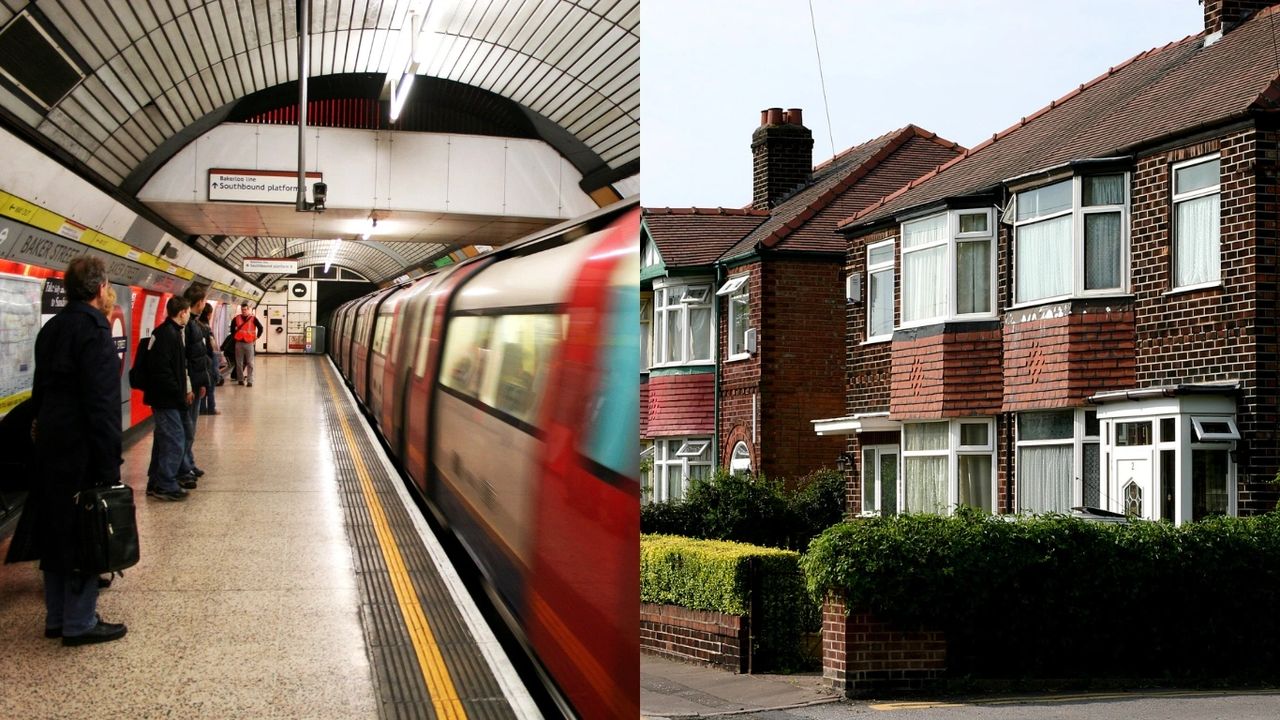4 April 2025|relocating
US to the UK changes
Have you just moved from the US to the UK and are about to start work? Or are you about to move from the US to the UK to start working? What are the changes you are going to encounter, and what have you already observed as an American in the UK?
Most people moving from the US to the UK comment initially on the amount of rain, the busy roads, and people’s teeth.
Once you start working, you will notice more US to the UK differences, but some will not be as obvious as the rain, roads, and teeth, so how can you navigate the different business culture?
This article answers that question and focuses on seven key areas of US/UK difference. The more you understand from the outset will aid your observations and will help you understand even more and adapt your successful American style to working in the UK successfully.

How to adjust when you move from the US to the UK
Your first impressions are important as they form a starting point. The key is to understand exactly what you are seeing, what things mean, and what you need to think about. Here are seven areas to consider so that you can adapt easily to the workplace culture in the UK and start to learn.
1. Service
The UK is not as service led as the US. Coupled with this is the greater emphasis on work life balance and taking time off work for holiday/vacation, illness, parental leave etc. So, getting things done will not be as easy as in the US, and often not as fast. You may try to speed things up and succeed, but often you may make no difference and just end up feeling frustrated. Keep in mind that it isn’t because no one cares, they are simply working in a different way and at a different pace. One last point is that call centres may not be based in the UK which will further complicate getting things done.
2. Time and timeliness
Change will be slower in and out of the workplace than you are used to. In the workplace, you may especially notice this if you want to expand your team or are hiring to replace someone. Out of the workplace, you will notice this when you are trying to install broadband or have furniture delivered.
3. Language
The level of positivity level will not be as high as in the US unless what you are hearing is sarcasm.
Example
Two colleagues are talking.
“How was your lunch?”
“Excellent.”
What do they mean? Was it a great lunch or was it awful? Of course, the tone and context will help you, but in general in the UK, the ‘excellent’ here will be negative or at best mediocre.
Example
If your manager or team leader asks you how your work is going and you reply – “fantastically,” they may appear a little surprised. Similarly, if you ask a similar question and receive the answer – “OK,” it doesn’t necessarily indicate that things are not going well.
You will probably hear more swearing than you are used to in the US. It is not meant to be aggressive or disrespectful. Some of your colleagues may not even realise they are doing it or may feel that if they are swearing at their computer screen or their coffee cup which has just spilled, it doesn’t count as workplace communication. You won’t be expected to join in and if anything makes you uncomfortable it is acceptable to say so to your colleague.
4. Humour
You will hear more humour than you are used to. You may be surprised by the amount of sarcasm and level of rudeness. In general humour is used in the workplace to ease communication and create relationships, and of course to entertain. Train yourself to be able to ‘hear’ sarcasm as otherwise it may trip you up. For example, when someone is being sarcastic; you respond positively, and then feel foolish. No harm is meant by humour, your British colleagues will assume you understand as, after all, we are all speaking the same language.
5. Work life balance
In the UK, there is a greater emphasis on work-life balance. The pace will be slower overall. Everyone’s health (physical and mental) is considered to be important. This also explains why in and out of work you will not get things done as quickly; as everyone else is taking time off if unwell, using their holiday allowance etc.

6. Work Culture
Teamwork
Teamwork is valued and so there is not as much individual praise. Praise when it happens will not be as obvious and will often be communal, even if not everyone was directly involved. It is very unlikely that you will see certificates or awards on display (except in professions that require proof of qualification). Competition will not be overt but, of course, still exists.
Meetings
Most meetings will contain lots of diplomacy and reserve/reticence and indirect communication. The pace may be slower than you have observed in the US. Sometimes, it may seem a struggle to get an answer or to reach a decision. There will be more debate and sometimes the debate will move away from the meeting topic. Some of your British colleagues may walk out of a meeting saying, ‘that was a great meeting,’ even when no decision has been reached. You may not feel the same way….
Creativity
Creativity is valued but there can be an aversion to risk compared with the US where risk is viewed more positively, as it can lead to success and shows an entrepreneurial character.
Requests
Requests will not be as direct and concise as you are used to. They will often be more indirect and packaged.
Example
Here are two colleagues emailing each other.
UK colleague
How are you?
I wonder if you could spare some time for a quick chat today. It’s not urgent so could wait until later in the week if that suits you better.
Could you let me know?
US colleague
Yes, when today and what is the subject?
Time off from work
Holiday/vacation time is valued and usually protected. Some people will answer emails when away, others only if there is an emergency, some not at all. Time off for illness, family issues etc. is viewed as OK and in general there isn’t a quota. Parental leave is more generous in the UK than in the US. Workers’ rights are much stronger in the UK than in the US. So, it is more difficult to ‘fire’ someone and most people feel their jobs are safer.
7. Socialising
In the UK, there is a clear divide between work and home. However, colleagues do socialise. The drinking of alcohol will seem more frequent and in more volume to you. For example, going out for a drink after work, doesn’t always mean just one.
The British are not as visibly friendly as you are used to. They may not ask you many questions or ‘chat.’ However, if you move them on to specific topics, conversation will flow better.
Conclusion and Key Takeaways
Moving from the US to the UK to work can be exciting and enrich your life and Resume. It is a steep learning curve to understand a new culture and work environment, but itis also interesting and invigorating.
If you would like to learn more about how to adapt to the work culture in the UK, book a half hour situation appraisal to discuss your needs with our Director, Caroline Gregory, or message her via our contact form below.
Further reading


This was a fantastic blog that clearly highlighted the cultural and communication differences between the US and the UK. I’m sure you’ll discover even more interesting contrasts when exploring India. The story you shared was insightful, and I learned a few valuable things.
Thank you!
Thank you for your feedback Srikar.
What are the intercultural tips that you have?